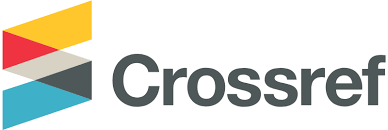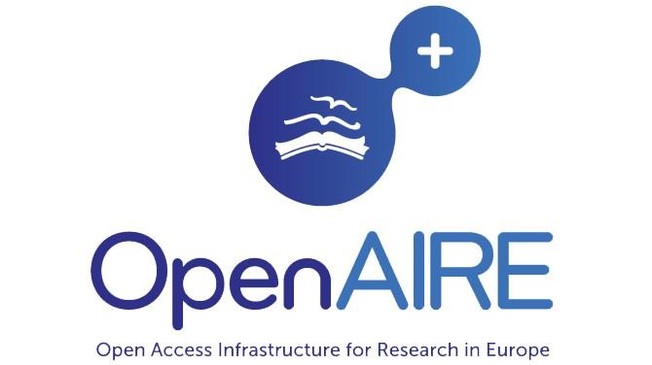THE EFFECT OF 21ST CENTURY LEARNING MODELS AND DIVERGENT THINKING TO HIGHER ORDER THINKING SKILLS IN PHYSICS SUBJECTS OF SENIOR HIGH SCHOOL
DOI:
https://doi.org/10.21009/03.SNF2020.02.PF.01Abstract
Abstrak
Era globalisasi memberi dampak pada berbagai aspek kehidupan, salah satunya adalah dalam pelaksanaan pendidikan. Pendidikan hendaknya mampu menghasilkan sumberdaya manusia yang memiliki kompetensi abad-21. Tujuan dari penelitian ini adalah untuk mengetahui pengaruh dari model pembelajaran abad-21 dan berpikir divergen terhadap kemampuan berpikir tingkat tinggi. Penelitian ini menggunakan metode Quasi Experiment, desain penelitian Treatment by level 2x2 dan terdapat 71 sampel yang dipilih dengan purposive sampling. Berpikir divergen dikelompokkan menjadi berpikir divergen tinggi dan rendah bertujuan untuk mengetahui pengaruh model pembelajaran terhadap tingkat berpikir divergen yang berbeda. Model pembelajaran abad-21 dibatasi yaitu kelas eksperimen diberi perlakuan menggunakan model Treffinger dan kelas kontrol diberi perlakuan dengan model Problem Based Learning. Pada penelitian ini diperoleh hasil uji-t sebesar 0,038 dan hasil uji anava 2 arah sebesar 0,04. Kesimpulan penelitian ini sebagai berikut: 1) ada perbedaan kemampuan berpikir tingkat tinggi siswa yang diberi model Treffinger dan model Problem Based Learning, 2) ada pengaruh interaksi antara model pembelajaran dan berpikir divergen terhadap kemampuan berpikir tingkat tinggi siswa.
Kata-kata kunci: treffinger, berpikir divergen, kemampuan berpikir tingkat tinggi.
Abstract
Globalization has an impact on various aspects of life, one of them is in the implementation of education. Education should be able to produce human resources that have 21st century skills. The aim of this research is to determine the effect of 21st century learning models and divergent thinking to higher order thinking skills. This research used a quasi experiment method, treatment by level 2x2 research design and there are 71 samples selected by purposive sampling. Divergent thinking is divided into high and low divergent thinking to determine the effect of learning model on various levels of divergent thinking. The 21st century learning model is consist in that the experimental class is treated using the Treffinger model and the control class is treated with the Problem Based Learning model. In this study the results of the t-test were 0.038 and the results of the 2-way anava test were 0.04. The conclusions of this study are as follows: 1) there are differences in the ability of higher order thinking skills who are given the Treffinger model and the Problem Based Learning model, 2) there is an interaction effect between learning models and divergent thinking toward higher order thinking skills.
Keywords: treffinger, divergent thinking, higher order thinking skills.
References
[2] I. Alifia, “Kemampuan Creative and Critical Thinking Melalui Model Pembelajaran Treffinger Dengan Strategi Metakognitif Untuk Materi Bangun Ruang Sisi Datar Kelas VIII SMPN 1 Dau Malang,” JURNAL PENDIDIKAN MATEMATIKA, vol. 4, pp. 76-85, 2018.
[3] Amanah et al., “Kemampuan Pemecahan Masalah Dalam Fisika Dengan Pembelajaran Generatif Berbantuan Scaffolding Dan Advance Organizer,” Jurnal Pendidikan Fisika dan Teknologi, vol. III, no. 1, pp. 84-92, 2017.
[4] Ball et al., “Exploring 21st Century Skills and Learning Environments for Middle School Youth,” International Journal of School Social Work, vol. 1, no. 1, pp. 1-15, 2016.
[5] H. Boholano, “Smart Social Networking : 21st Century Teaching and Learning Skills,” Research in Pedagogy, vol. 7, no. 1, pp. 21-29, 2017.
[6] A. Chalkiadaki, “A Systematic Literature Review of 21st Century Skills and Competencies in Primary Education,” International Journal of Instruction, vol. 11, no. 3, pp. 1-16, 2018.
[7] A. Demšar & A. Aneja, “Resume, Eulogy, Education and Future,” IOP Conf. Ser. Mater. Sci. Eng, 2017.
[8] M. Kleden, Y. Sugi & U. Gerardus, “Contextual Learning On The Basis of Coastal Culture to Enhance Students,” Competency in Mathematical Problems Solving, IOP Conf. Ser. J. Phys. Conf. Se, pp. 1-7, 2018.
[9] U. Munandar, “Pengembangan Kreativitas Anak Berbakat,” Jakarta: Rineka Cipta, 2014.
[10] I. Arifin, I. Wilujeng, and J. Jumadi, “The Effect of Quick on The Draw Model Assisted by The Physics Learning Book Integrated Pancasila Values on Critical Thinking Skill”, JPPPF (Jurnal Penelitian dan Pengembangan Pendidikan Fisika), vol. 6, no. 1, pp. 121 - 130, Jun. 2020.
[11] Y. R. Liana, S. Linuwih, and S. Sulhadi, “The Development of Thermodynamics Law Experiment Media Based on IoT: Laboratory Activities Through Science Problem Solving for Gifted Young Scientists”, JPPPF (Jurnal Penelitian dan Pengembangan Pendidikan Fisika), vol. 6, no. 1, pp. 51 - 64, 2020.
[12] D. Sari, A. Wulan & R. Solihat, “Developing 21st Century Student Research Skills through Assessment Matrix and Edmodo in Biology Project,” Int. Conf. Math. Sci. Educ, 2018.
[13] B. Subali, “Kemampuan Berpikir Pola Divergen Dan Berpikir Kreatif Dalam Keterampilan Proses Sains,” Yogyakarta: UNY Press, 2013.
[14] The Freedictionary, “Retrieved from Divergent Thinking,” 2014, Retrieved from www.thefreedictionary.com.
[15] T. Wagner, “Overcoming The Global Achievement Gap (Online),” Cambridge: Harvard University, 2010.
[16] N. Nurhayati and L. Angraeni, “Analisis Kemampuan Berpikir Tingkat Tinggi Mahasiswa (Higher Order Thinking) dalam Menyelesaikan Soal Konsep Optika melalui Model Problem Based Learning”, JPPPF (Jurnal Penelitian dan Pengembangan Pendidikan Fisika), vol. 3, no. 2, pp. 119 - 126, 2017.
[17] Wirahayu et al., “Penerapan Model Pembelajaran Treffinger Dan Ketrampilan Berpikir Divergen Mahasiswa,” Jurnal Pendidikan Geografi, vol. 5, pp. 30-40, 2018.
[18] S. Nurazizah, P. Sinaga, and A. Jauhari, “Profil Kemampuan Kognitif dan Keterampilan Berpikir Kritis Siswa SMA pada Materi Usaha dan Energi”, JPPPF (Jurnal Penelitian dan Pengembangan Pendidikan Fisika), vol. 3, no. 2, pp. 197 - 202, 2017.
[19] S. Zubaidah, “Keterampilan Abad Ke-21: Bagaimana Membelajarkan Dan Mengasesnya?,” Semin. Nas, 2018.




